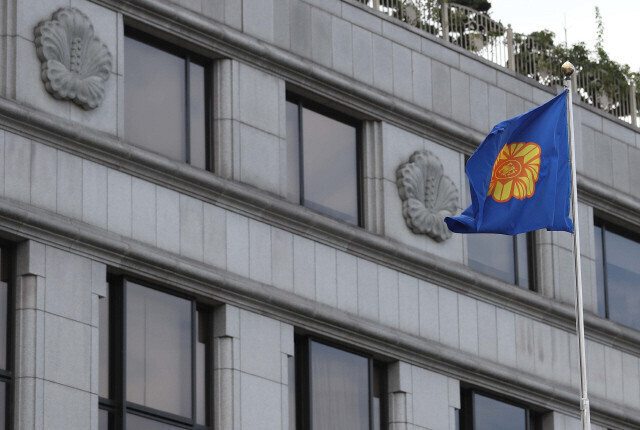 Source photo” alt=”View of the Constitutional Court. <한겨레> Material photo” />
Source photo” alt=”View of the Constitutional Court. <한겨레> Material photo” />
View of the Constitutional Court. Base photo
The Constitutional Court decided that the provisions of the law that punished others for defaming other people’s reputation by spreading false information online were not contrary to the Constitution. The Constitution announced on the 4th that with the unanimous opinion of all the judges, it made a constitutional decision in the judgment of the constitutional petition that the provisions of the Act on Promotion of Information and Communication Network Use and Information Protection (Information and Communication Network Act) infringe on basic rights. Claimants A and B were charged with defaming the victim’s reputation by publicly revealing false information through information and communications networks for the purpose of slandering the victim, and were sentenced to imprisonment and fines respectively. Mr. C, who was charged with the same charges, was also subject to probation on condition of consignment to the probation center. Accordingly, Mr. A and others claimed that basic rights were violated by Article 70 (2) of the Information and Communication Network Act, and requested a judgment on a constitutional complaint. Article 70 of the Information and Communication Network Act stipulates that if the reputation of another person is damaged by publicly revealing false facts through the information and communication network for the purpose of slandering a person, imprisonment for not more than 7 years, suspension of qualifications for not more than 10 years, or a fine of not more than 50 million won. . Accordingly, the Constitution said, “The damage can be serious due to the rapid spreading and widespread ripple effect, and it is not easy to recover the damage afterwards.” “In order to protect the reputation of individuals, the act of defaming the reputation of the victim by publicly posting false facts on the information and communication network. Criminal punishment is recognized for the legitimacy of the purpose and the appropriateness of the means.” The claim that the punishment was heavier than the crime of defamation under the criminal law, and thus violated the principle of equality, is also asking for “the purpose of slander,” and demanding that the reputation of others be damaged through the information and communication network that increases the extent and extent of the damage. The requirements are different from those of the criminal law,” he added, adding, “Because it is said that the statutory sentence was augmented in consideration of the circumstances that the illegality and result illegality became heavier than the criminal defamation provisions, it is difficult to say that the balance was lost in the punishment system.” By Jo Yoon-young, staff reporter
